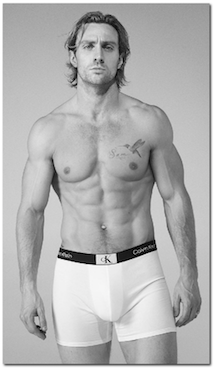ETA Check below for a bunch of links and pictures!

I wasn't sure what day Michael Haneke's The White Ribbon was screening at Cannes but I kept dutifully checking like the slave to the man that I am and my patience has been rewarded today as it appears to have gotten it's first showing now. First reviewish thing I've seen comes via Lisa Schwartzbaum at EW.com:
"Also powerful: The White Ribbon from Michael Haneke, the Austrian-born director who specializes in messing with our heads. (Not content to unhinge us with Funny Games in 1997, he did a faithful U.S. remake two years ago.) The menace is much quieter and restrained here, as befits an old-timey-style fable shot in misty, shadowed black-and-white and set in what the director describes as "a village in Protestant northern Germany, on the eve of World War I." It's here, in this little town of modest churchgoers and a well-ordered class system, that "accidents" start to mount up, and deaths, too. Is the mischief divine, the work of good neighbors, or even the doing of fresh-faced children? Chilling, and resonant, The White Ribbon is part history lesson and part Village of the Damned."
I'm sure we'll be getting bunches more tiny glistening tastes to come, so stay tuned... and if anybody sees something and wants to toss me a link in the comments it'd be much appreciated; I want to make sure that I scavenge every single tiny morsel about this movie up until I'm sick of it months before it's out!
ETA See? The "ink" wasn't even dry on this post before I went and found another reviewish thing. Via The Times (UK) (and yes, I'm transplanting the whole damn thing for one-stop eyeballing, so beware of slight spoilers):
"It’s turning out to be an uncommonly interesting Cannes competition. Festival regular Michael Haneke (Funny Games, Code Unknown, The Piano Teacher, Hidden) returns to the Croisette this year with an extraordinary, rigorous drama set in a small village in Protestant Northern Germany in the years before the First World War.
Shot in sober black and white, with no musical score and told with a stately and deliberate pace, The White Ribbon is infused with a fascinatingly austere cruelty. Focusing as it does largely on the generation which would go on to embrace the tenets of national socialism, it’s tempting to read the film as an allegory for the foundations of Nazi Germany in the psyche of its people. But as with much of his work, particularly Hidden and Code Unknown, Haneke leaves us with more questions than answers.
Narrated, as a distant reminiscence, by the village schoolteacher at the time in question, the film recounts a series of disturbing events which shatter the equanimity and repressed propriety of this seemingly model rural community. First, the local doctor is seriously injured after a riding accident – he and his mount are brought crashing to the floor by a concealed tripwire which no one can account for. The death of a worker in the local sawmill triggers more bad feeling – the dead woman’s son takes a scythe to the Baron’s cabbage crop as he holds him responsible for the negligence which caused the accident. The same day, the Baron’s young son is abducted, later to be found strung up, beaten and severely traumatised. An even more unpleasant fate awaits Karli, the mentally handicapped son of the local midwife. Meanwhile, the barn is deliberately torched and the farmer whose son was responsible for the cabbage vandalism takes his own life. The village is being punished, but by whom?
It becomes increasingly clear that malice and spite are at work at every level of the community, from the cruel and disinterested ruling class to the bands of sharp-faced, serious children who seem to be drawn magnetically to any hint of tragedy. Discipline in the village borders on child abuse: the Pastor’s children are regularly caned into miserable submission; they are forced to wear the ribbon of the title to signify the innocence and purity that the Pastor believes that only regular corporal punishment will achieve. Dig deeper, and the rot within the community is even more pernicious.
In contrast to the calculated cruelty in the village is the teacher’s courtship of the sweet, shy Eva, the former governess to the Baron’s children. A carriage ride in the country is a warm and wonderful scene, and one that is uncharacteristically gentle for the ascetic, alienating Haneke. But ultimately, it is the cold brilliance of this arthouse luminary and the uncompromising vision of his latest work that would seem to assure him of awards recognition at the close of the festival."
Let's keep it going, critics of the world! Love! Get this man a big golden statue!
ETAA Okay now that I'm looking they're everywhere and even I can't keep up. Here are some links then:
INDIEWire's review here
IFC's review here
TotalFilm's review here
ScreenDaily's review here
Dear Cinema's review here
Telegraph's review here
FilmOFilia's review here
IFC's review here
TotalFilm's review here
ScreenDaily's review here
Dear Cinema's review here
Telegraph's review here
FilmOFilia's review here
And via that last link come a bunch more pictures! Eee!!!
It's a very Haneke Christmas in May!
It's a very Haneke Christmas in May!




 .
.



































4 comments:
London Time Out also gives it 5 stars here http://www.timeout.com/film/reviews/86771/the-white-ribbon.html
I can't wait to see it. Unfortunately I'll probably have to.
Any Enter the Void reviews?
Hey there,
This is from the Guardian
http://www.guardian.co.uk/film/2009/may/21/cannes-white-ribbon-review
the pictures from this are making me a little over-excited. I'm with you, gagging for every word.
A scene is up on Youtube:
http://www.youtube.com/watch?v=rUUuD0oh81o
Post a Comment